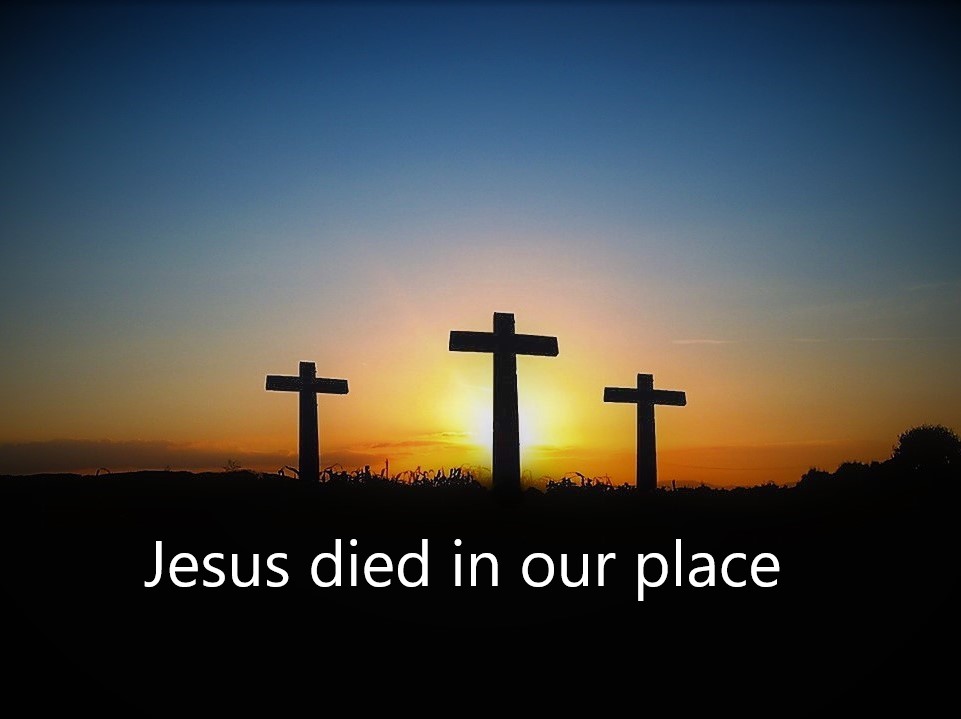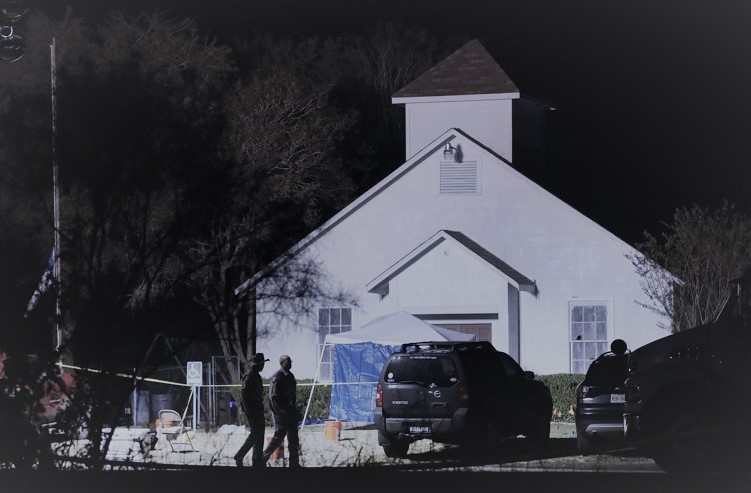 During our visit to Savannah, Georgia last year, my wife and I came across a painting, La Parabola, at the Telfair Academy for art. The painting, shown above, depicts the entire life of a woman in two separate panels. I felt a sense of sadness as I initially studied the painting.
During our visit to Savannah, Georgia last year, my wife and I came across a painting, La Parabola, at the Telfair Academy for art. The painting, shown above, depicts the entire life of a woman in two separate panels. I felt a sense of sadness as I initially studied the painting.
Cesare Laurenti (1854-1936), who painted La Parabola in about 1895, intended his work to depict the progression of “human life . . . The race toward pleasure, until clouds of weighty thoughts and sorrow come to disturb the serenity of the young soul.” On the left panel, we see a young girl racing toward adulthood and the joys of romance. On the right, we see images of the same woman ever advancing in age toward death.
Is this not why our hope matters so much? If this painting represents the totality of our existence, we have no hope.
But because of Jesus, such is not the case. He is alive and we will be with Him, perhaps soon. This is the resurrection hope of 1 Corinthians 15; all believers will someday have an immortal body just like His.
So, you might ask. What is the big deal? Don’t all believers see this? Yes . . . and No.
So many believers today live as though this world is all they have. They live their lives inside the one-world perspective of Laurenti’s painting seeing only their slow and painful progress through this life. They voice a belief about heaven, but it fails to impact their lives. Without a focus on Jesus’ return and life with Him in eternity, the hopes of so many believers becomes earthbound, wrapped up solely in worldly outcomes that often lead to despair.
A One-World Outlook
The problem with living with such a one-world outlook is that it offers no vision of the joys of eternity. It’s like a prison from which one cannot escape. Sure there are many good experiences along with the bad as we progress through life, but without a heartfelt anticipation of the excitement of eternity, we remain trapped in life’s slow progression not unlike what is depicted in the painting by Cesare Laurenti.
It’s when we lose sight of the non-ending joy ahead for us that our losses become unbearable, our fears overwhelming, and our frustrations with life greater than we think we can bear.
Years ago, experienced the futility of living life in just such a way. As a young pastor, I welted under the weight of tragic circumstances that entered my life. Even though I loved to teach about future things, I still lived with a one-world perspective. When my life turned upside down, to put it mildly, I lost sight of forever. I lived as though only this life mattered.
I longed for earthly success at the expense walking faithfully with the Lord with a focus upon what He had for me both here and forever.
My response to the turmoil in my life demonstrated that my hope had not reached my heart. I was not yet living with a two-world outlook on life. I longed for earthly success at the expense walking faithfully with the Lord with a focus upon what He had for me both here and forever.
A Two-World Perspective
It was when I took the two-world perspective of 2 Corinthians 4:17-18 to heart that the Lord began His work of healing in my heart. I finally understood the truth of Paul’s words in Romans 8:18 that “the sufferings of this present time are not worth comparing with the glory that is to be revealed in us.”
As I grasped the importance of the unseen eternal realities versus my temporal pursuits, my fears became far less daunting and my frustrations with life eventually faded away. My losses were very significant, but when I weighted them against the glory of eternity and God’s eternal purposes they diminished both in scope and importance.
Beginning with Jesus’ return for us, we have a hope more wondrous than we can imagine.
I finally saw the futility of living as though everything depended on what happened to me in this life or on what I could accomplish. So what if I got all that I wanted? Did it really make a difference from the standpoint of eternity or two thousand years from now? How could that compare to living a life of trust dependent on Jesus? What will matter the most in eternity when I stand before the Lord?
Beginning with Jesus’ return for us, we have a hope more wondrous than we can imagine. This is why New Testament believers looked forward to Jesus’ appearing to take them home with such great anticipation. This lifted their gaze upward in the midst of great persecution found comfort and encouragement to continue taking courageous stands for the Lord.
We find this eager anticipation all through the New Testament. In Philippians 3:20 Jesus said, “But our citizenship is in heaven, and from it we await a Savior, the Lord Jesus Christ.” The sense here is of eagerly anticipating Jesus’ return as in 1 Corinthians 1:7 as well.
In Titus 2:13 Paul describes believers as “waiting for our blessed hope, the appearing of our great God and Savior Jesus Christ.” Jesus’ return is our blessed hope. We will someday share in His resurrection life. Jesus is our blessed hope; He is coming to take us to be Him (John 14:1-3).
Our hope matters. This is why Satan does everything he can to take our eyes off of it. First, he introduces false teachings into the church that focus believers solely on earthly dreams. If Jesus has already returned, as some false teachers proclaim, then what do we have to look forward to? Are we not back to living bound to the ups and downs of whatever comes our way locked into a one-world perspective?
Second, if the devil cannot dissuade us through such false ideas, he does all he can to take our eyes off the great joy ahead for us. He will keep our focus on the prison of this life rather than the joyous paradise that awaits us.
The Path to Paradise
Years ago, John J. Davis wrote a commentary on Genesis called Paradise to Prison. The title, of course, depicts the effect of sin on the human race. God created Adam and Eve and placed them in paradise, the Garden of Eden. Sin entered the world and along with it death. Adam and Eve did not die right away, but became trapped in the path toward death with no escape. They found themselves imprisoned by their rebellion against God.
It’s Jesus, however, who turns our prison into a sure hope of dwelling in paradise forever.
We are not any better off for knowing Christ if an eternal and resurrected life is not in our future.
Paul said this, “If in Christ we have hope in this life only, we are of all people most to be pitied” (1 Cor. 15:19). Why? If we have no hope beyond our current lives, we remain trapped in the prison of sin and death that entered the world with Adam and Eve. We are not any better off for knowing Christ if an eternal and resurrected life is not in our future.
But such is not the case; in Jesus this is precisely the sure outcome of His salvation.
Jesus is the only way to this eternal life, to the paradise that awaits us beyond the here and now. He is the reason we can endure all our afflictions and setbacks. We know a better day is coming. We will spend eternity with Him experiences joy beyond what we can imagine.
Do you know Jesus as your Savior? Are you looking forward to paradise after death? Jesus died a cruel death on the cross so we could receive eternal life. He rose again confirming the validity of all His promises.
If you have not yet done so, please turn to Him before it is too late. He is waiting for you!











 Do you remember when Joel Osteen’s book, Your Best Life Now, came out? I remember that many pastors criticized its emphasis on this life over eternity.
Do you remember when Joel Osteen’s book, Your Best Life Now, came out? I remember that many pastors criticized its emphasis on this life over eternity. Is there anything around us today that we could describe as “unshakable?” Politicians, movies stars, and leaders continually prove that they are frail human beings just like everyone else.
Is there anything around us today that we could describe as “unshakable?” Politicians, movies stars, and leaders continually prove that they are frail human beings just like everyone else. Many people today do not believe in a millennial kingdom. They believe Jesus will return at a distant future time, judge humanity, and bring in the eternal state.
Many people today do not believe in a millennial kingdom. They believe Jesus will return at a distant future time, judge humanity, and bring in the eternal state. Last night I saw an extraordinarily good documentary called Genesis: Paradise Lost that was both informative and rich in proof of the Genesis account. I highly recommend this movie, which may be playing in a theater near you this coming Thursday night, November 16.
Last night I saw an extraordinarily good documentary called Genesis: Paradise Lost that was both informative and rich in proof of the Genesis account. I highly recommend this movie, which may be playing in a theater near you this coming Thursday night, November 16. Thomas Chisholm was born in a log cabin in Franklin, Kentucky in 1866. He became a believer at the age of 27 and a Methodist preacher at the age of 36 despite a lack of formal training for the ministry. Unfortunately, after only a year poor health made it impossible for him to continue as a pastor.
Thomas Chisholm was born in a log cabin in Franklin, Kentucky in 1866. He became a believer at the age of 27 and a Methodist preacher at the age of 36 despite a lack of formal training for the ministry. Unfortunately, after only a year poor health made it impossible for him to continue as a pastor. As I reflect on the Sutherland Springs shooting this past Sunday, the word “brutal” comes to my mind. In 2 Timothy 3:2 the Apostle Paul says that people will become “heartless, unappeasable . . . brutal . . . treacherous, reckless” during the last days. Is this not what we are seeing throughout our world to an ever increasing degree?
As I reflect on the Sutherland Springs shooting this past Sunday, the word “brutal” comes to my mind. In 2 Timothy 3:2 the Apostle Paul says that people will become “heartless, unappeasable . . . brutal . . . treacherous, reckless” during the last days. Is this not what we are seeing throughout our world to an ever increasing degree?
 During our visit to Savannah, Georgia last year, my wife and I came across a painting, La Parabola, at the Telfair Academy for art. The painting, shown above, depicts the entire life of a woman in two separate panels. I felt a sense of sadness as I initially studied the painting.
During our visit to Savannah, Georgia last year, my wife and I came across a painting, La Parabola, at the Telfair Academy for art. The painting, shown above, depicts the entire life of a woman in two separate panels. I felt a sense of sadness as I initially studied the painting. The apostle Paul begins his list describing the characteristics of people who make up the “perilous times” of 2 Timothy 3 with the phrase “lovers of self.” Does this not sum up the Facebook generation? For many, posting is all about drawing attention to themselves, their lives, and their opinions. It’s all about making them look good. I have not been immune to this temptation myself.
The apostle Paul begins his list describing the characteristics of people who make up the “perilous times” of 2 Timothy 3 with the phrase “lovers of self.” Does this not sum up the Facebook generation? For many, posting is all about drawing attention to themselves, their lives, and their opinions. It’s all about making them look good. I have not been immune to this temptation myself. This coming October 31st marks the five hundred year anniversary of the beginning of the Reformation. On October 31, 1517 Martin Luther posted his 95 Theses on the door of the Wittenberg Castle Church in Germany. These 95 Theses became the foundation of the Protestant Reformation, which for many restored the biblical ideal of justification by faith and thereby the purity of the Gospel message.
This coming October 31st marks the five hundred year anniversary of the beginning of the Reformation. On October 31, 1517 Martin Luther posted his 95 Theses on the door of the Wittenberg Castle Church in Germany. These 95 Theses became the foundation of the Protestant Reformation, which for many restored the biblical ideal of justification by faith and thereby the purity of the Gospel message.